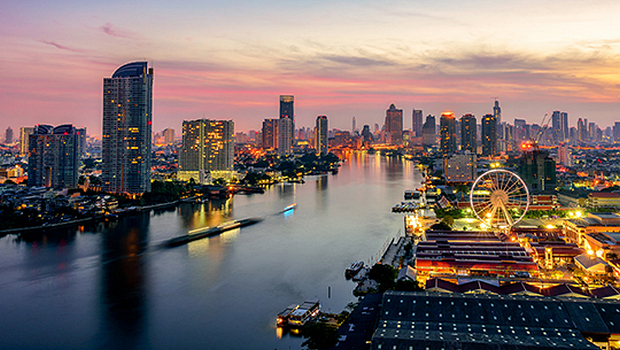Sustainable Management of Refrigeration Technologies in Marine and Off-Shore Fisheries Sectors, 6-8 April 2017, Bangkok, Thailand

Organized by the UN Environment (UNEP), ASHRAE, the International Institute of Refrigeration (IIR), and the United Nations Industrial Development Organisation (UNIDO), with the kind support of the Government of the Kingdom of Thailand and the Department of Industrial Works, the Sustainable Management of Refrigeration Technologies in Marine and Off-Shore Fisheries Sectors Conference takes place April 6-8, 2017, in Bangkok, Thailand.
Refrigeration technologies are essential for the cold food chain management: be it on land or in the marine sectors. Refrigeration and Air-Conditioning technologies in the mobile marine and fisheries sectors play a critical role towards meeting and sustaining the obligations to the Protocol. Economically the technologies of refrigeration, chilling, freezing, ice making and air-conditioning equipment are essential for mobile marine and fishery operations and in sustaining livelihoods. In September 2016, the Montreal Protocol Technology and Economic Assessment Panel (TEAP) decision XXVII/4 task force update reported that 70% of the global fishing fleet continues to use hydrochlorofluorocarbons-22 (HCFC- 22) as main refrigerants. In keeping with the mandate of the Protocol, HCFC-22 is currently being phased-out worldwide.
RAC technology management in the mobile marine and fisheries sector has a critical role in meeting the phase out targets specified by the Meeting of the Parties (MOP) to the Protocol and ensuring sustainable environmental practices in their RAC applications. Refrigeration, freezing, ice making and air-conditioning equipment are fundamental for mobile marine and fishery operations as well as sustaining economic livelihoods.
This international conference will focus on the practices of this industry in the management of existing systems, longer term energy efficient systems, advancement and selection of related refrigeration and air-conditioning (RAC) technologies. In keeping with the ongoing developments of the Montreal Protocol, the conference will address the different aspects, mentioned earlier, in conjunction with eliminating/minimizing the use of either hydrochlorofluorocarbons (HCFC) or high-GWP hydrofluorocarbons (HFC), as refrigerants, and the relevant obligations under the Montreal Protocol as well as other international policies and governing treaties.
